Scientists often run three or more highly complex projects in parallel. On top of that, a growing number of publishers and funding agencies require scientists to make their raw data available upon publication according to the four foundational principles – Findability, Accessibility, Interoperability, and Reusability (FAIR). To ensure goal-oriented and time-efficient management of both raw data and scientific projects we will discuss selected established as well as emerging tools and techniques complementing the basic principles of classical project management.
Course content
- Plan and structure your PhD program
- Concepts and basics of Project and Time management
- Time Management
- Digital Tools for Science Project Management
- FAIR Data Management & Open Data
- Agile Kanban for Science
- Project Monitoring & Evaluation
- Digital Tools for Scientists
Suggested agenda
Day 1: Focus on Research Project Management (RPM)
| Welcome and introductory discussion – Identifying expectations and core questions | 15 mins |
| (1) Components, procedures and goals for RPM – identifying reasons and beneficiaries – listing proven concepts and components – discussing procedures and best practices | 40 mins |
| (2) Planning ahead: from Research Proposal to Dissertation – Preregistration and monitoring – GSP and Research Documentation, F.A.I.R Data Management – Short summary and elevator pitch of your PhD thesis | 40 mins |
| (3) Digital tools and platforms for the research workflow – Electronic Laboratory Notebooks – Digital PM tools & the Kanban concept – Data privacy and security, Intellectual Property and Licensing | 40 mins |
| Closing session & outlook on day 2 – Open questions & Feedback | 15 mins |
Day 2: Focus on Time Management & Open Science Communication
| Welcome and introductory discussion incl. recap of day 1 – Identifying expectations and core questions | 10 mins |
| (1) Time-efficient project planning – proven time management strategies and concepts – scheduling off times, dependencies and unexpected results – know yourself and your peak performances | 45 mins |
| (2) Task lists, calendars and deadlines – Treating time as a limited resource – pros and cons of task lists – Time planning: analog vs. digital | 45 mins |
| Tea & coffee break | 10 mins |
| (3) How Open Science is speeding up the research cycle – Vienna Principles of OA Scholarly Communication – identifying time-savers and efficacy factors in OS practices | 45 mins |
| (4) Monitoring progress over time – Setting priorities and scheduling the day, week, month, dissertation – Develop your own TM strategy | 45 mins |
| Closing session – Open questions, Feedback – Discussing implementation and knowledge transfer | 10 mins |

Pivot Global Education was commissioned by the Universities South Africa’s Entrepreneurship Development in Higher Education along with the Department of Higher Education and Training (South Africa) to assess and map the development of entrepreneurship throughout the country’s public universities by evaluating structures, supports, delivery and successes in entrepreneurship development. The project's aim was to provide a baseline overview of the status of entrepreneurship development across the government-sponsored higher education landscape ...
Read More
Read More
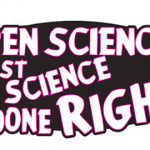
This article was originally published at ese-bookshelf.blogspot.com by our colleague Duncan Nicholas. After more than a year of work, the Open Scholarship Strategy document has been published in full. The work was inspired by the Foundations for OER Strategy Development, the FORCE11 Scholarly Commons Working Group, and developed by an open contribution working group of 32 people, including , , , , , and Read More

This post was originally published in Swedish at the Vetenskap & Allmänhet website. “VA is an independent Swedish non-profit membership organization that works to promote dialogue and openness between researchers and the public.” This English version was originally published . I harp on about it all the time, so I may as well carry on here too: The research community today is weighed down by a communication culture ...
Read More
Read More
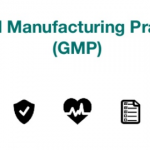
For a 2-day course on Good Manufacturing Practice earlier this week, I prepared the following presentation. The lecture started with a recap of Good Scientific Practice, followed by Good Laboratory Practice as prerequisites for reliable and transparent manufacturing in pharmaceutical, medicinal, food and agricultural industries. from Insights and feedback from the participants ranged from "Why didn't we have this lecture before ...
Read More
Read More
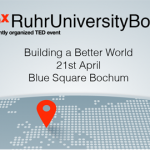
In April this year, the following 10 changemakers gathered at Ruhr University for TEDxRuhrUniversityBochum: (1) presenting his social enterprise Saora Insustries, which delivers a solution for sustainable, affordable and environment-friendly drinking water. (2) Jakob Schoen had a vision of a volunteer maritime salvage back in 2015, when he heard about the many deaths of people trying to cross the Mediterranean Sea and co-founded Jugend Rettet which owns the boat JUVENTA and has already saved more ...
Read More
Read More
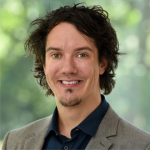
This podcast was originally published at PhD Career Stories. changed his career path in 2011 after his PhD in Marine Microbiology at the Max Planck Institute for Marine Microbiology in Bremen. In todays “PhD Career Story” he talks about how he became a science communicator and which skills you can use from your PhD if you aim to be self-employed. You can use a lot of your PhD skills, even if ...
Read More
Read More

This podcast was originally published at PhD Career Stories. "Hello and welcome to today’s podcast on PhD Career Stories. My name is Johanna Havemann and I will tell you a bit about my path up until today. At this very moment, I am in Cape Town, South Africa and will also pass by Nairobi, Kenya next week. Normally, I am based in Berlin, Germany from where I work as a ...
Read More
Read More
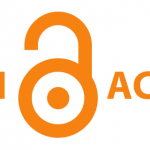
Our short answer is "YES". Do you need arguments in favor of Open Access (OA) in Research? Here you go: More citations per article OA articles are available free of charge not only to scientists all around the globe, but also to journalists, policy makers, economists and the general public – who pays for large chunk of the conducted research. Alternative metrics (altmetrics) allow especially young scientists to build a reputation by ...
Read More
Read More